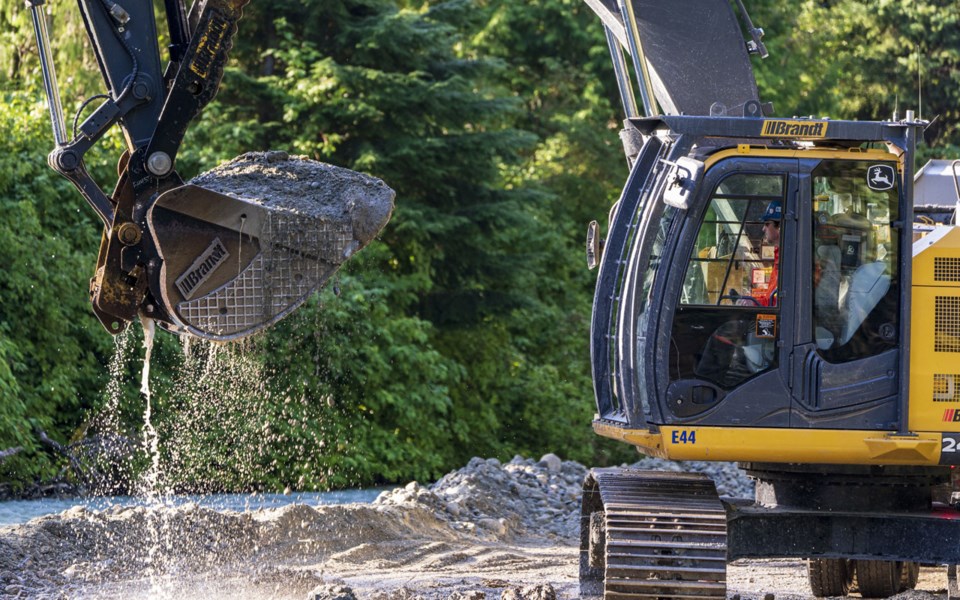The construction industry in Whistler and the Sea to Sky has rebounded after an initial COVID-19 slowdown, but things like sluggish permit processing and housing for workers remain an issue.
“We’ve been one of the few industries that’s been able to just keep chugging along, and I think that we’re fortunate in that regard,” said David Girard, director of the Canadian Home Builders’ Association’s (CHBA) Sea to Sky chapter.
There was a period in March and April where CHBA members had projects cancelled or postponed, “but I think for the most part a lot of that has come back on-stream and things are quite busy these days,” Girard said.
“I think some projects just went away, but everybody that I talk to is busy. That’s a positive, for sure.”
And while the industry also had to deal with a PPE shortage at the outset of the pandemic, as well as adapt to new COVID-19 safety guidelines, “I think that everybody is handling it really well,” Girard said.
But in the four years since the Resort Municipality of Whistler’s Illegal Spaces Task Force (ISTF) last met, communication has been lacking between industry and local government, Girard said in a recent letter to council.
The relationship has been a positive collaborative effort for the better part of a decade, he said, but has been put on the backburner in recent years as things like the Official Community Plan understandably took precedence.
“We just felt it’s time to rekindle that a little bit and recognize that they have some challenges ahead of them,” Girard said.
“We just want to be good corporate citizen in the community and help them with coming up with solutions.”
In his letter, Girard requested that the ISTF be resurrected, with a new name and reimagined scope.
One of the issues that needs to be addressed is a slower turnaround time for permits in light of the pandemic, which vary by government, he said.
“It’s not consistent, but whether it’s this municipality, or other municipalities, or regional districts or whatever the case may be, I think that everyone is just trying to learn how to deal with this, because things do take longer now,” he said.
“I think that the municipality just needs to recognize that there is an opportunity to improve on turnaround times.”
For Whistler’s Coastal Mountain Excavation (CME), the slowdown in March and April had a big impact, with all 14 of the company’s residential lot preps cancelled or postponed, said president and director Matt Woods.
“We’ve started four of those 14 now. So, if I’m not digging a hole, plumbers aren’t plumbing, electricians aren’t wiring stuff up, roofers aren’t roofing, guys aren’t banging nails. The trickle down effect is huge,” he said, adding that CME’s revenue is down more than 30 per cent as a result of the pandemic.
“And I’m one of the lucky ones. We still have the doors open. We’re not making a ton of money, (but) we’re surviving.”
As far as how government can best support builders, “I think it’s bigger than the municipality,” Woods said.
“I think it’s provincial, regional and federal, and infrastructure stimulus spending is usually where quick money goes to fund projects to get people back to work, because it does spin off to so many other things.”
And as for the long-term vibrancy of Whistler’s No. 2 industry, the key is more housing, Woods said (see related story on page 32).
“If people could live here, I could hire 20 more people tomorrow,” he said.




